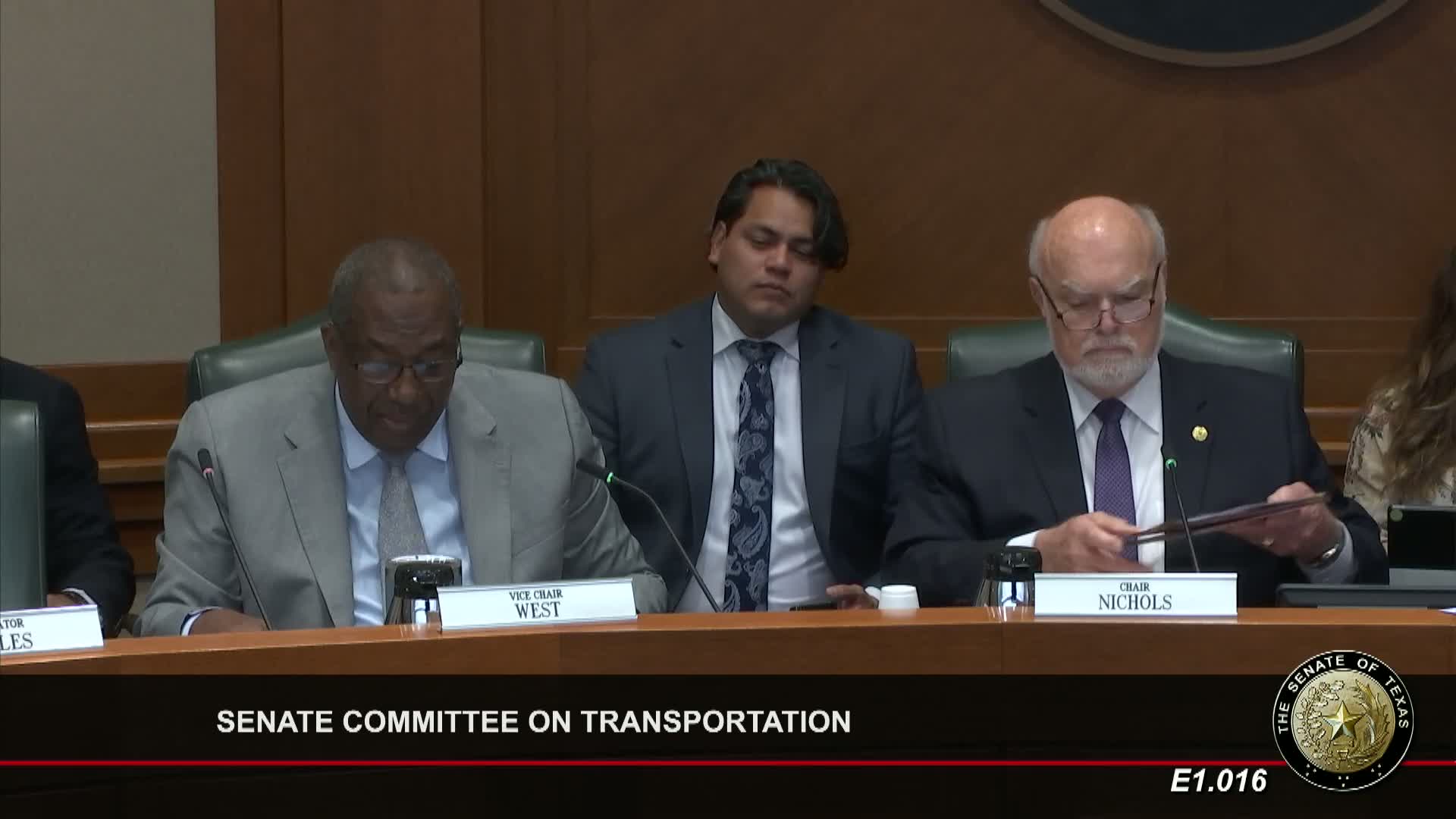Committee backs lower local match for state aviation grants in economically disadvantaged counties
Get AI-powered insights, summaries, and transcripts
Subscribe
Summary
The committee advanced SB 22 26 to lower the local match for state aviation grants from 10% to 5% for airports in economically disadvantaged counties, with TxDOT testimony explaining eligibility and interaction with federal funding.
Senator Nichols explained that Senate Bill 22 26 would reduce the local match requirement for certain state aviation grants from 10% to 5% for airports in economically disadvantaged counties that cannot provide the usual 10% local share. "Many general aviation airports do not have available funding from the airport sponsor, such as those in economically disadvantaged counties," Nichols said, arguing the change would expand opportunities to secure needed aviation capital projects.
Dan Harmon, Aviation Director for the Texas Department of Transportation, told the committee that TxDOT administers grants for general aviation airports and that 182 of roughly 264 airports in the state qualify for federal funding; the remainder are eligible only for state funding. Harmon described the recent federal 95% federal funding rates in the FAA Reauthorization Act for FY2025–26 and said TxDOT has historically mixed state and federal funds to make projects whole when funds are available.
Harmon said the state is constrained by statute from providing more than 90% state participation to state-only airports under current law; SB 22 26 would help airports that cannot meet a local match requirement. He said Lancaster Municipal Airport is eligible for federal funding and historically has received a mix of federal and state funds, but some small airports in disadvantaged counties cannot meet even reduced local-match thresholds.
Committee members asked whether general-law cities or urban counties could use similar programs; Nichols and TxDOT staff said the reduced match would only apply to airports in counties that meet the bill’s economically disadvantaged criteria. Discussion included whether some small airports in wealthier counties might also have difficulty meeting a 10% match; the author said he would continue discussions with TxDOT about specific cases such as Lancaster.
The committee voted to report SB 22 26 favorably to the full Senate; the clerk recorded the recommendation with 6 ayes and no nays.
